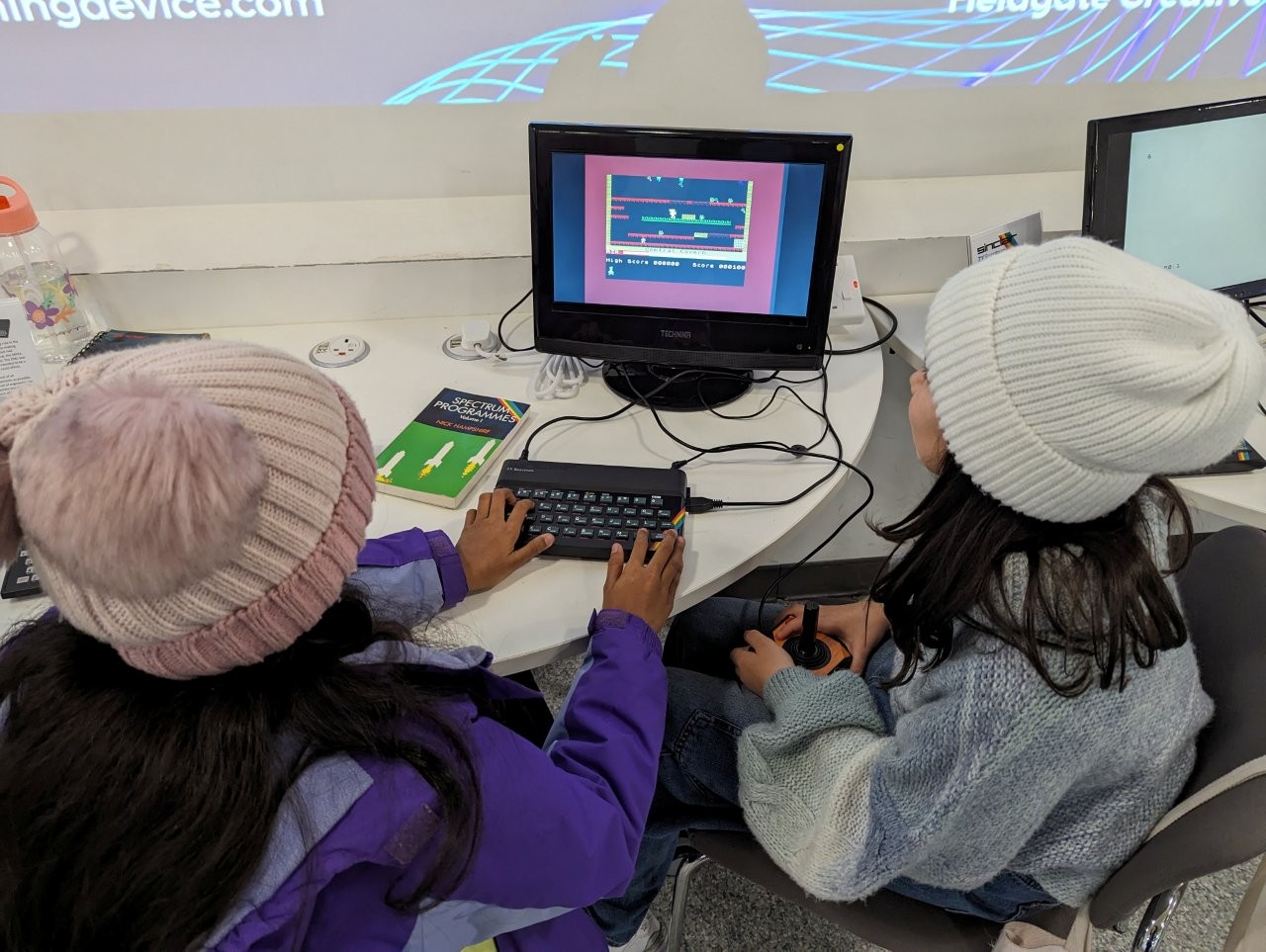
Timeless classic
The computer is five times their age and so is the game, but for these two young exhibition visitors, Matthew Smith's Manic Miner on the Spectrum is just as addictive today as it was in 1985!
Following on the success of Creating the Everything Device, our 2025 exhibition focused on the home microcomputers of the 70s, 80s and 90s. These were the first truly personal computers; they took computers out of laboratories and into people's homes. These early pioneers made computers accessible to ordinary people for the first time, laying the foundations for the future we now live in. Visitors were able to go hands on, try classic games and also retroprogramming on these machines.
We also showcased vintage games consoles of the era from companies such as Sega, Nintendo and Atari, and visitors got to play the seminal classics that shaped today's major games titles on the original hardware.
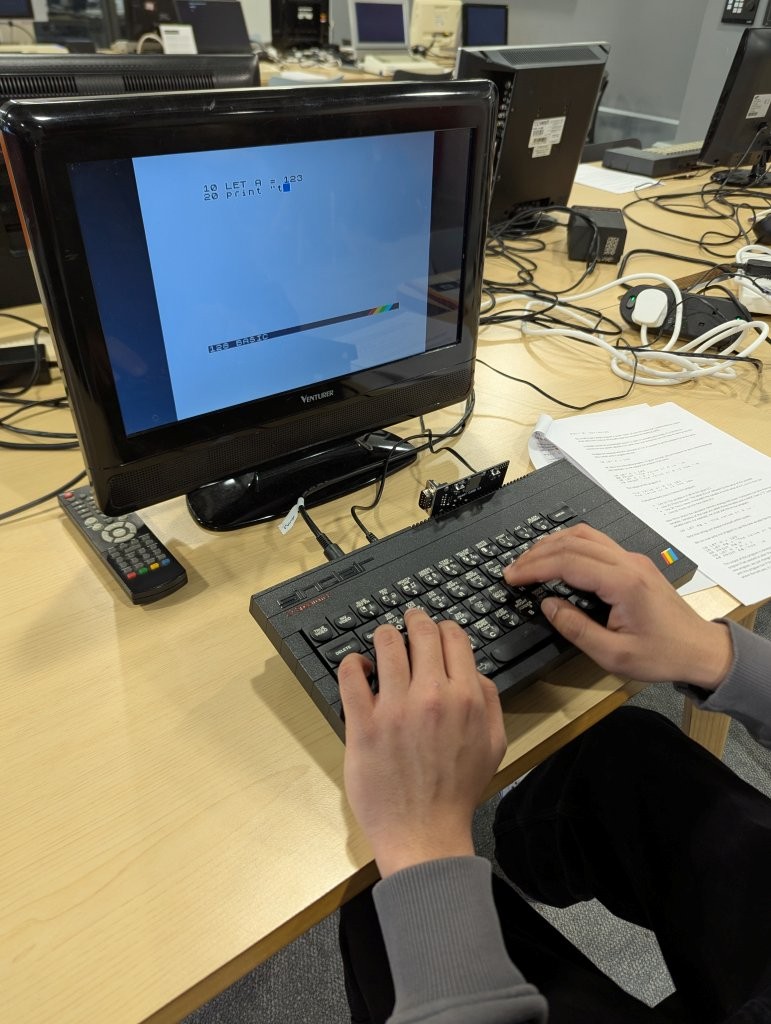
Our YouTube channel showcases what we're up to, our exhibits, and legendary people, companies and computers from history, but you'll always be able to watch our latest video below.

To join our mailing list to hear news about what we're doing and upcoming events, please enter your email address below. The only emails you'll ever receive from will be about ARC@KU activities and we will not pass your address onto anyone else.
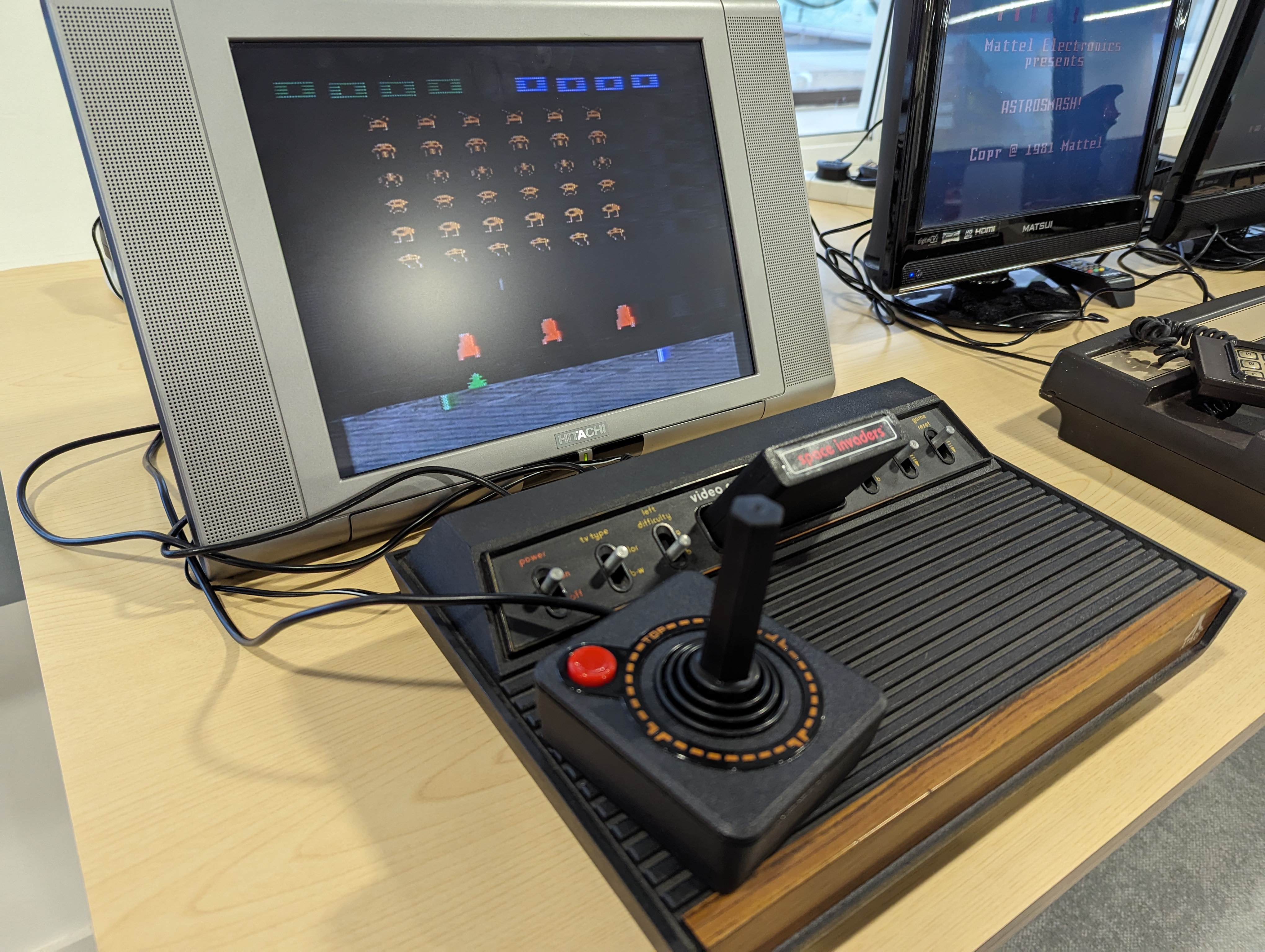
This is a small visual showcase some of ARC@KU's past events including pop-up session for outreach at schools, open days at KU and our previous public-facing exhibitions.

The computer is five times their age and so is the game, but for these two young exhibition visitors, Matthew Smith's Manic Miner on the Spectrum is just as addictive today as it was in 1985!
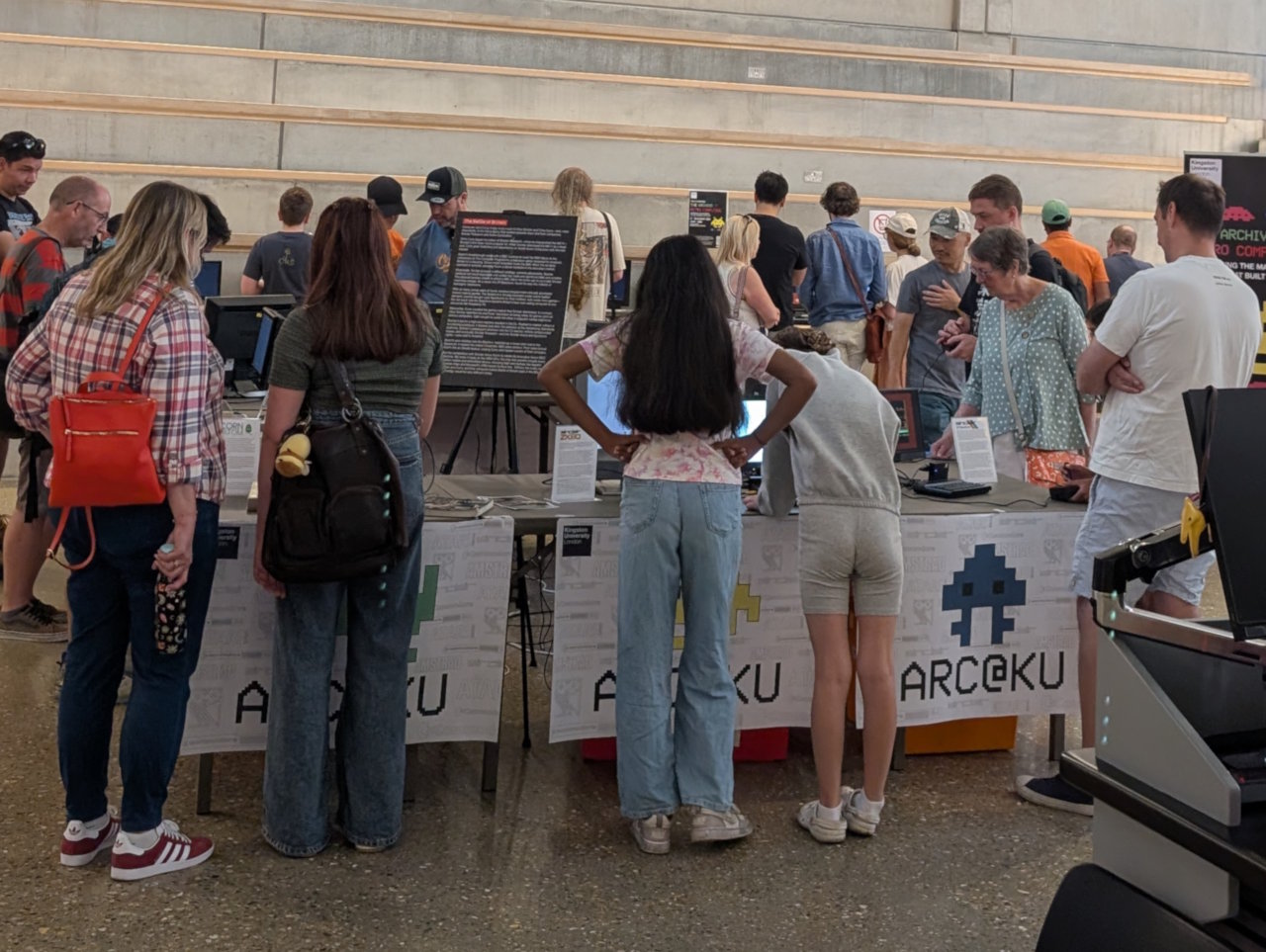
The 2025 event saw around two thousand visitors over the course of the week, drawing in people from all ages.
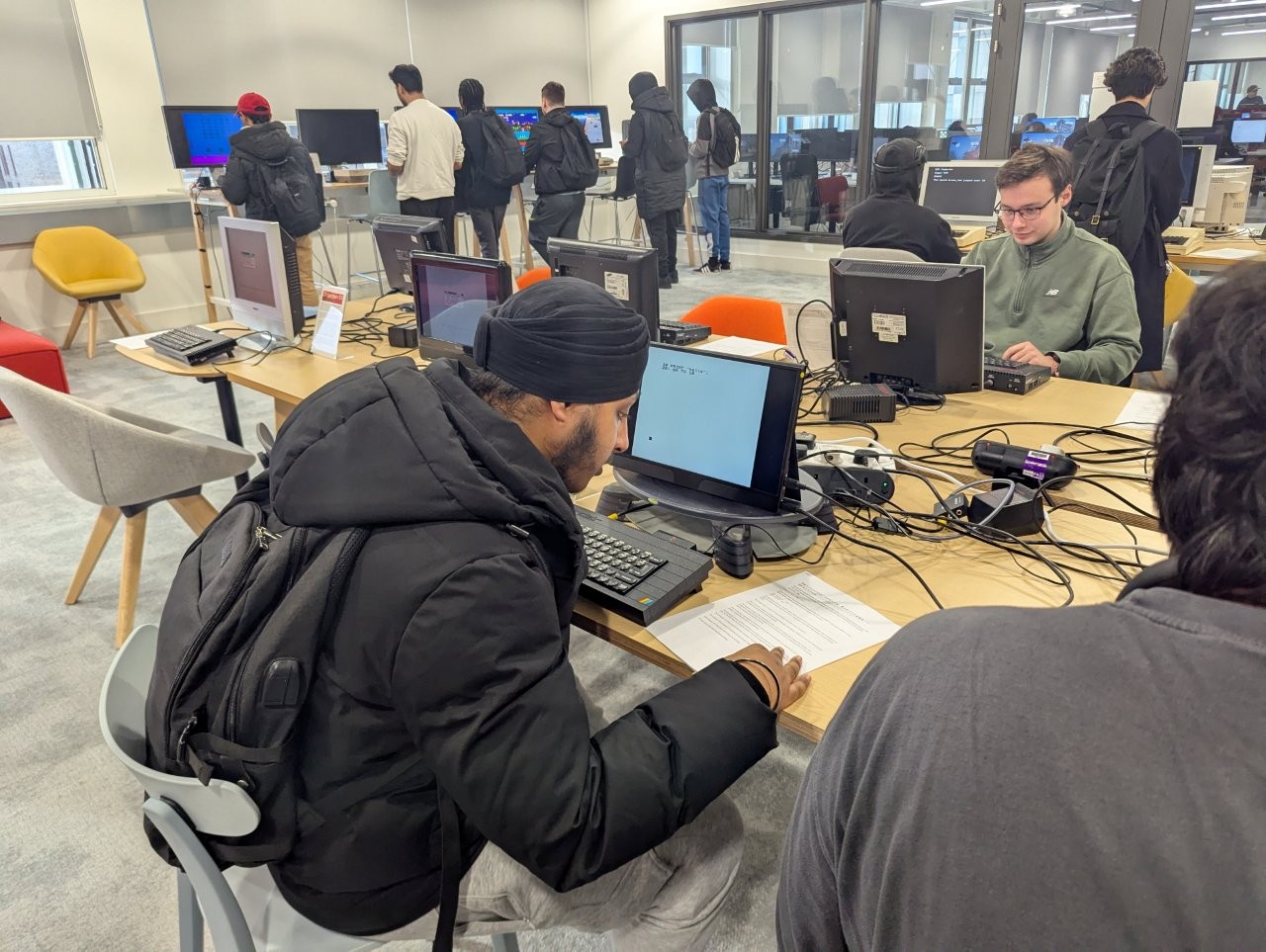
One of our favourite events is when students try their hands at programming - old school! One of our pedaogic themes at KU is thinking like a programmer and working with vintage languages like BASIC often gives them new insight into this mindset and process which they bring to their work with modern languages.
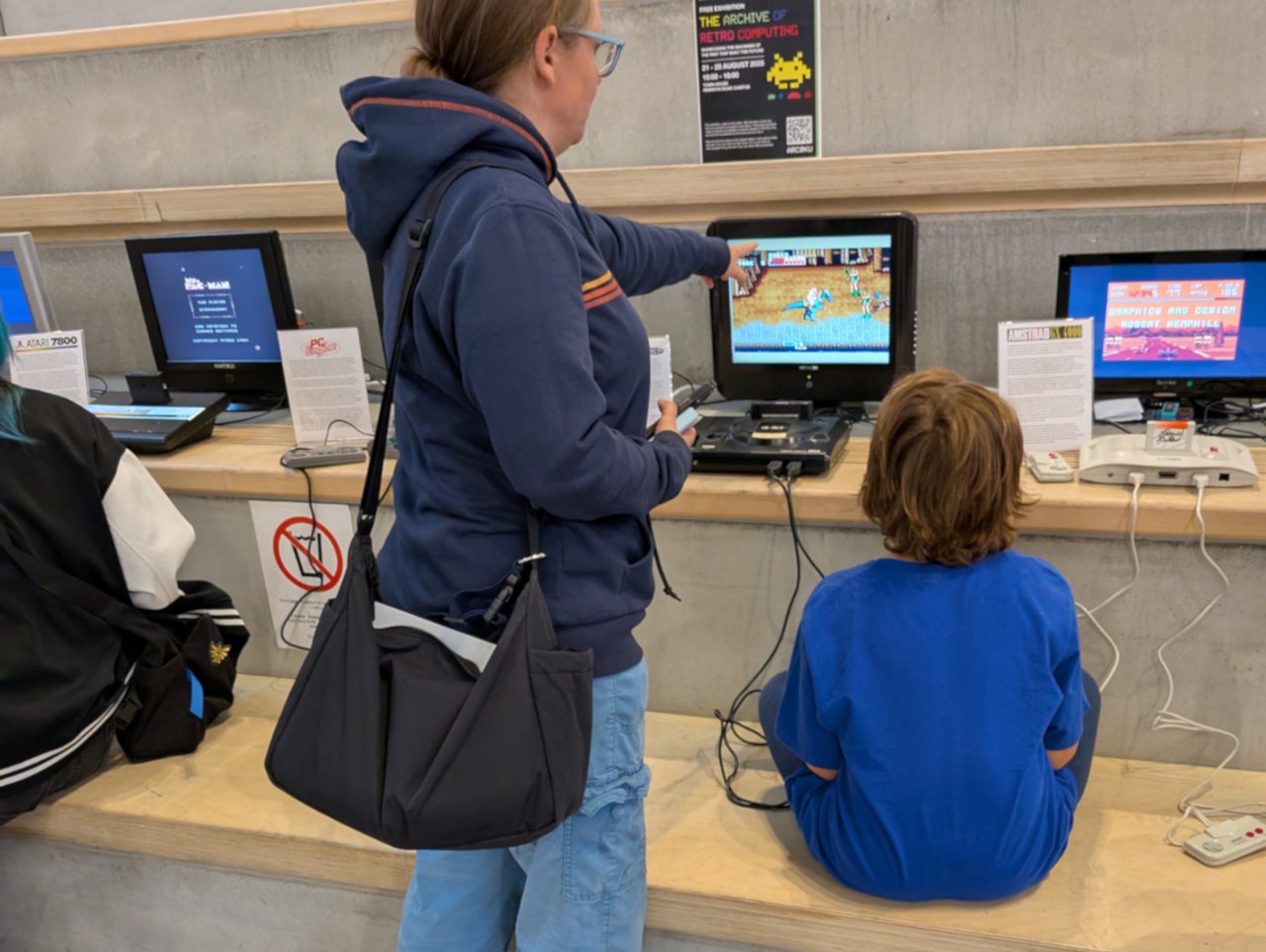
The wisdom of your elders is always worth listening to - especially when you're playing Golden Axe for the first time!
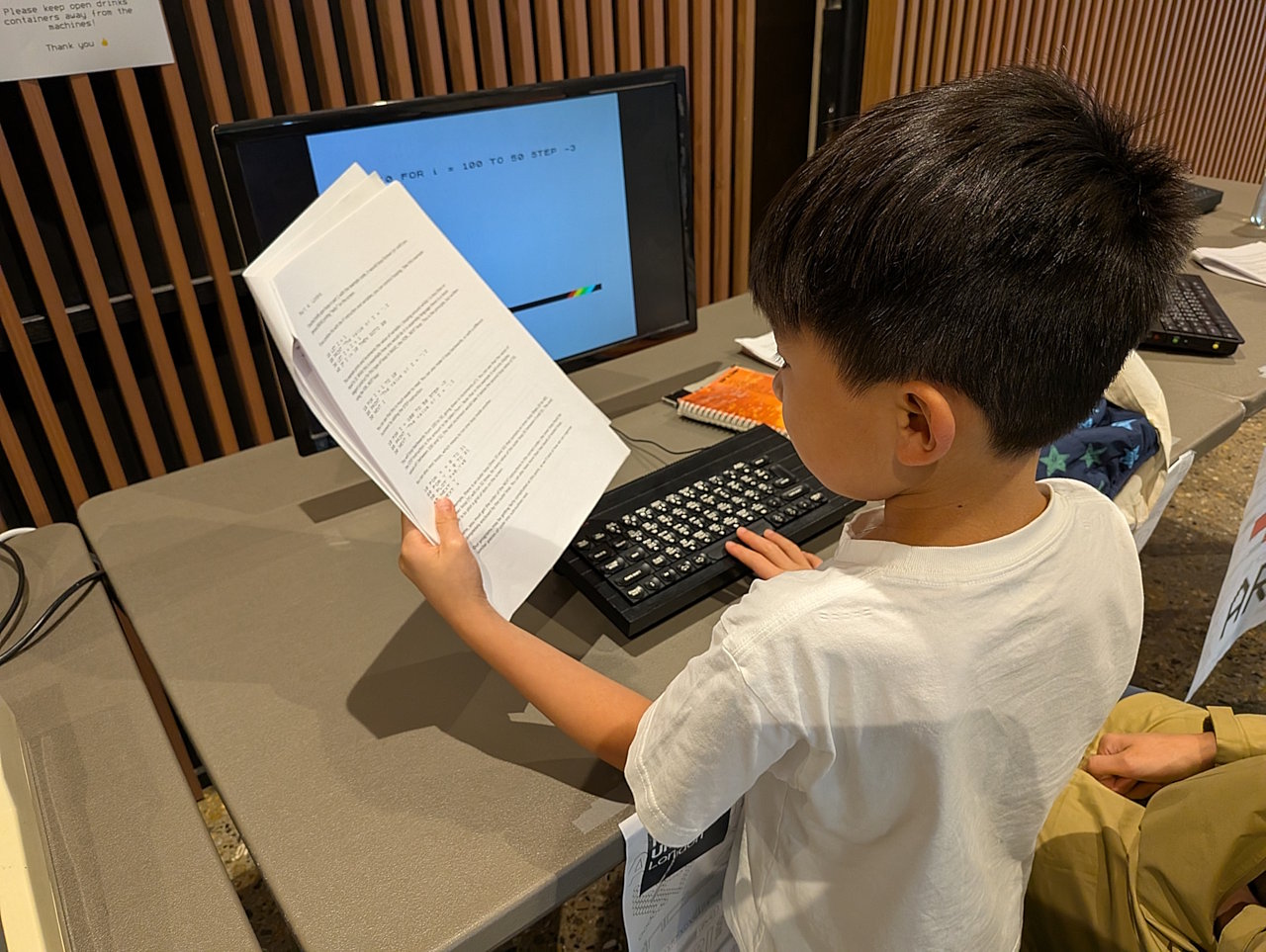
One of the things that always amazes me is how the youngsters take to coding on the vintage machines...!
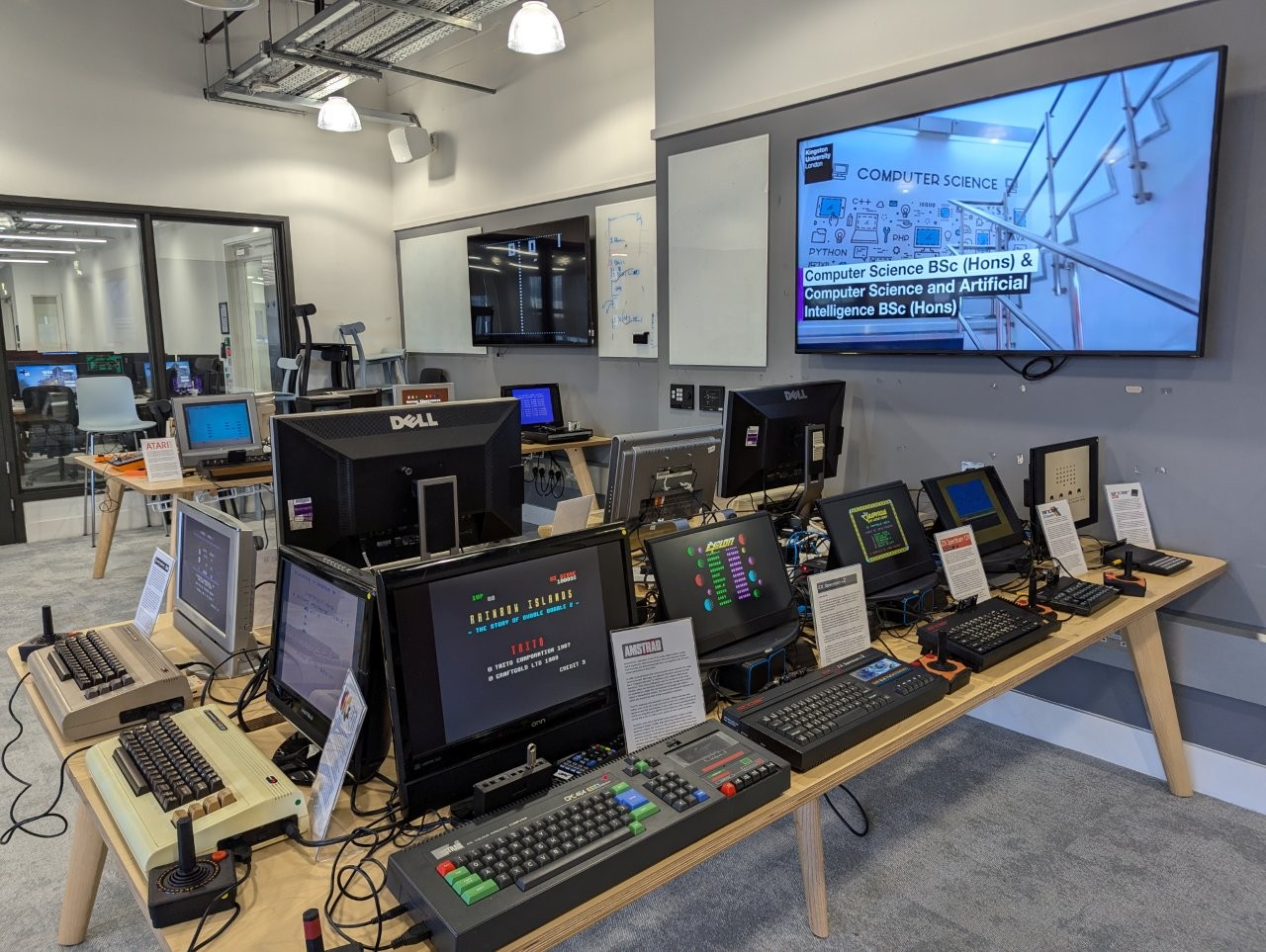
Putting our best retro feet forward to make a KU open day memorable!
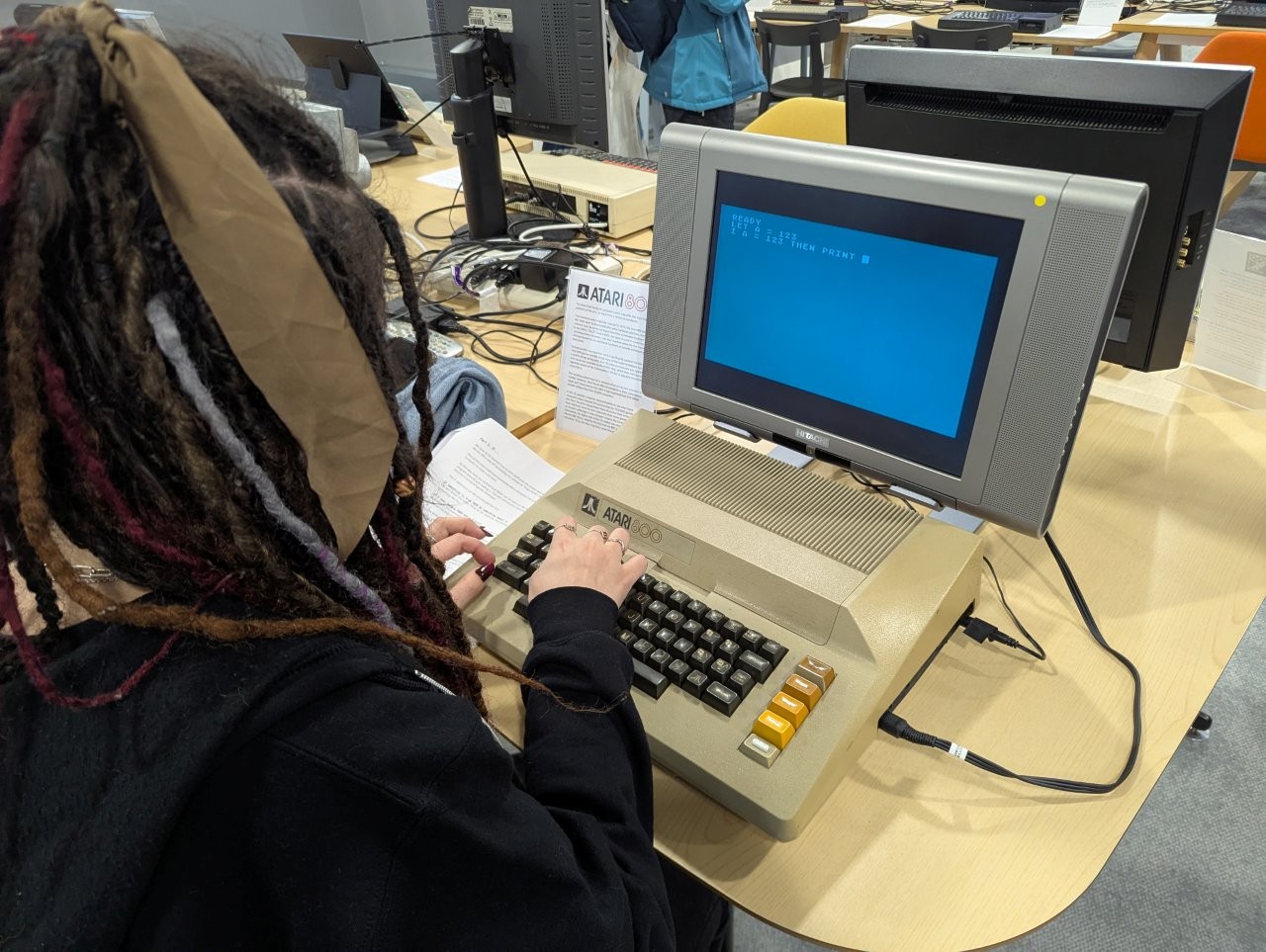
An open day visitor gets their coding hands dirty on an Atari 800.
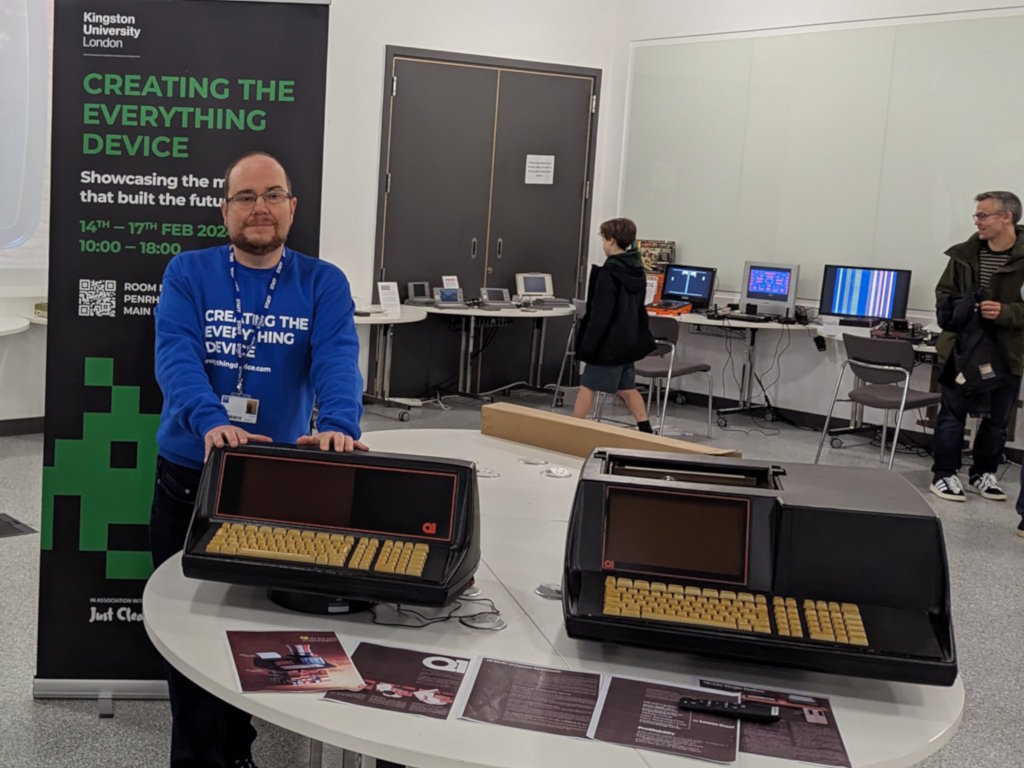
The little known Q1 was the first true microcomputer, with its first model released in 1972. Q1 Corporation sold very few machines and mainly to governments and organisations like NASA. Here we see a Q1 Lite and Microlite loaned to us by Just Clear at last year's Creating the Everything Device event.

Putting our best retro feet forward to make a KU open day memorable!
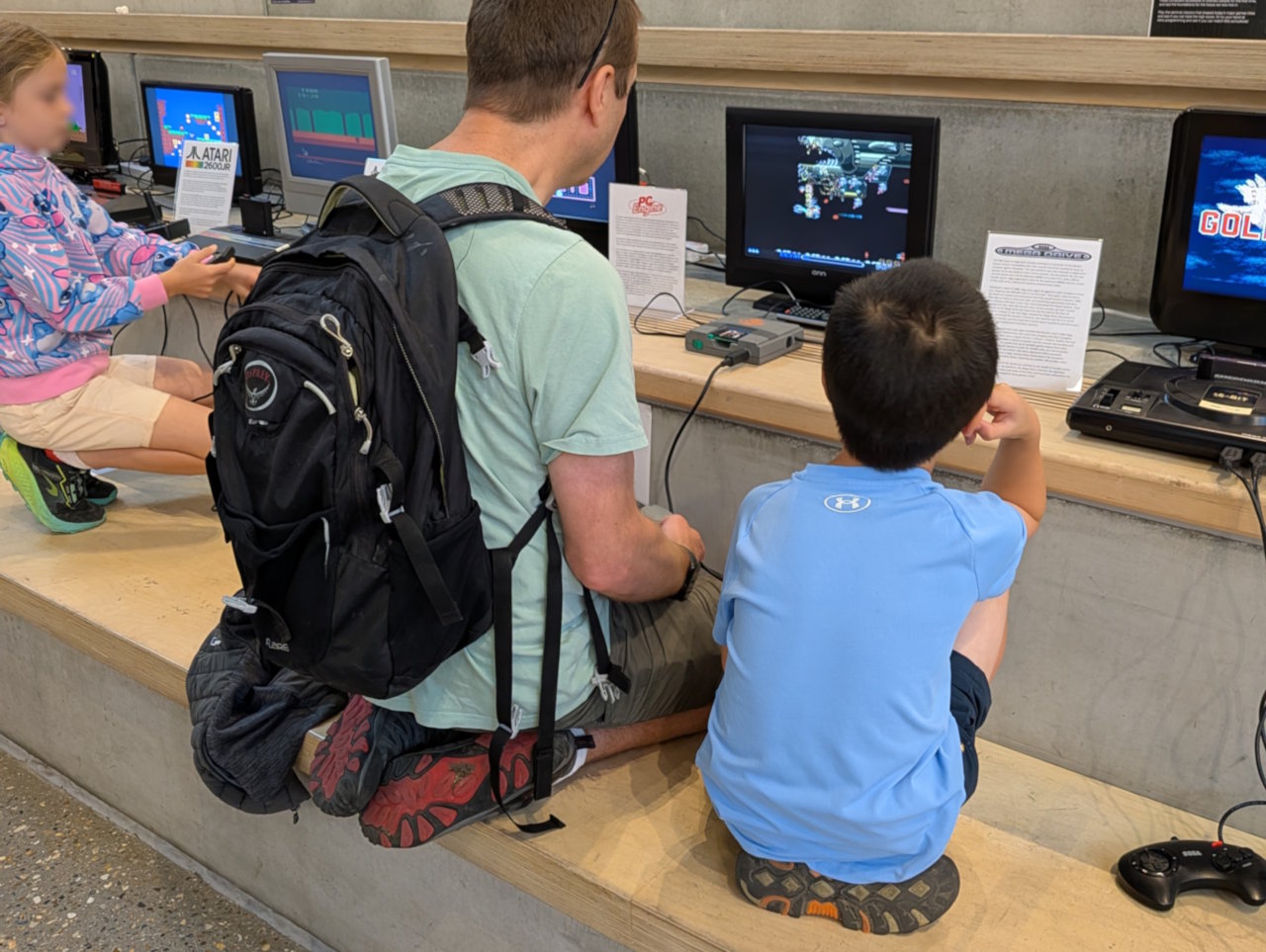
This pair were repeat visitors to ARC@KU 2025 - they couldn't leave until they'd cracked R-Type level 3!

The retro hordes ready for an outreach session with a local school, where the kids get to try their hand at retro-programming. And, who knows, maybe the odd game might sneak on the screens too!
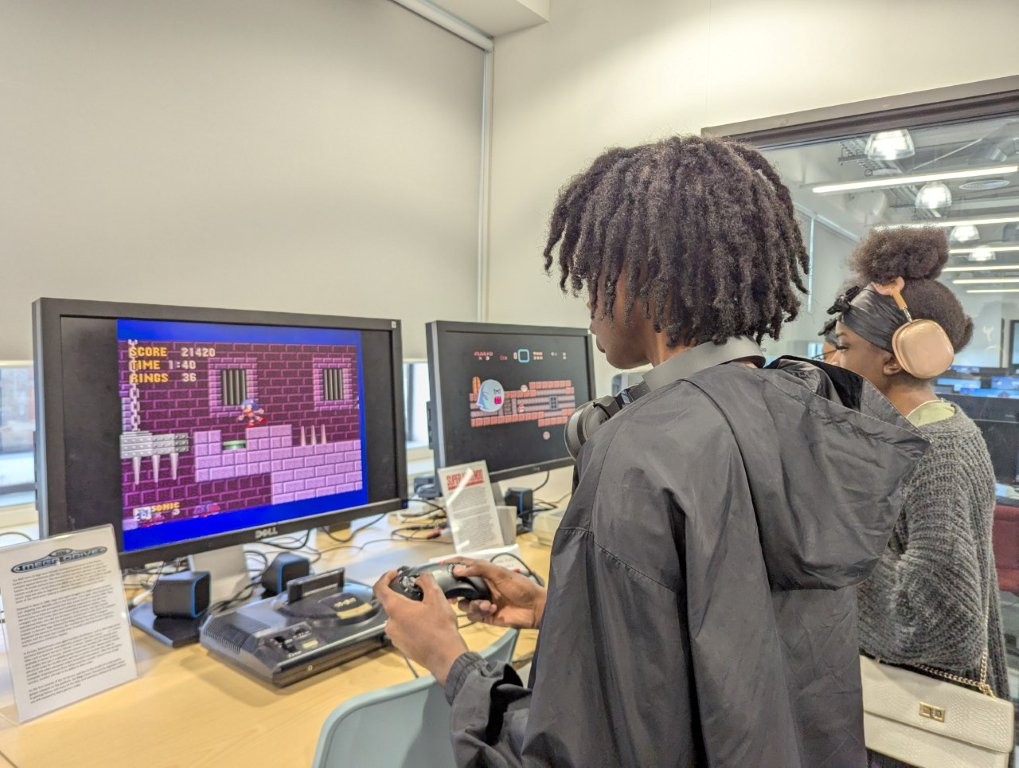
And it's not all hard work and coding! Our visitors get to play the classic games, like Sonic, on the original hardware.
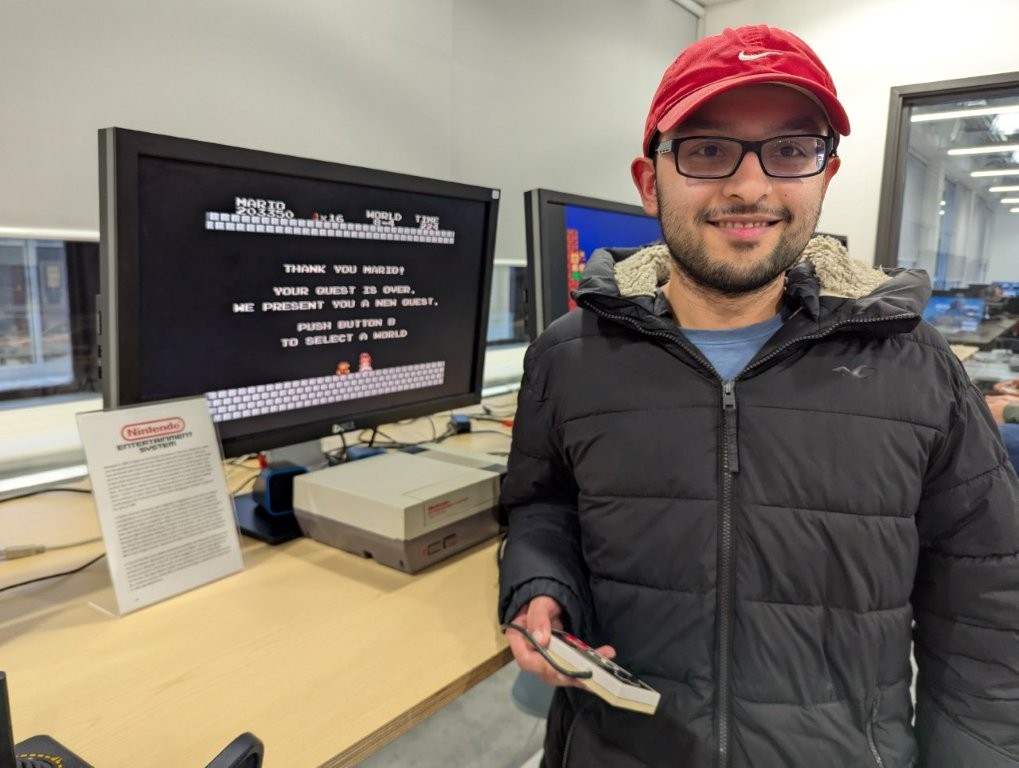
Or if you're a Nintendo fan instead of Sega, you could always do what this open day visitor did, and play Super Mario from start to finish! Perhaps if he does enrol at KU, maybe we should consider this achievement as contributing to course credit :)
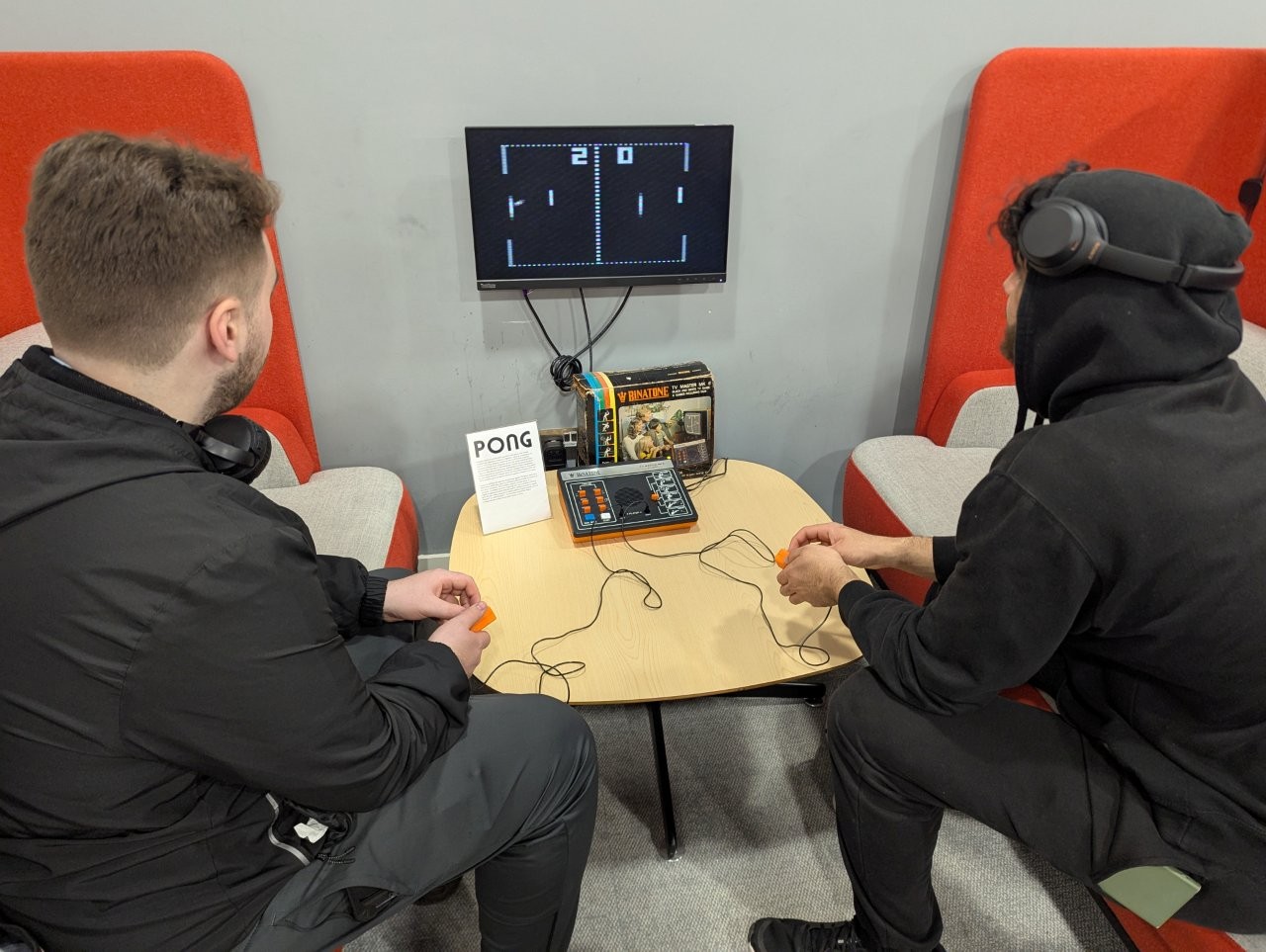
Who needs sports games real-world physics and graphics that are barely distinguishable from reality, when you've got the original sports game, Pong? Still a big draw at every event we ever do!
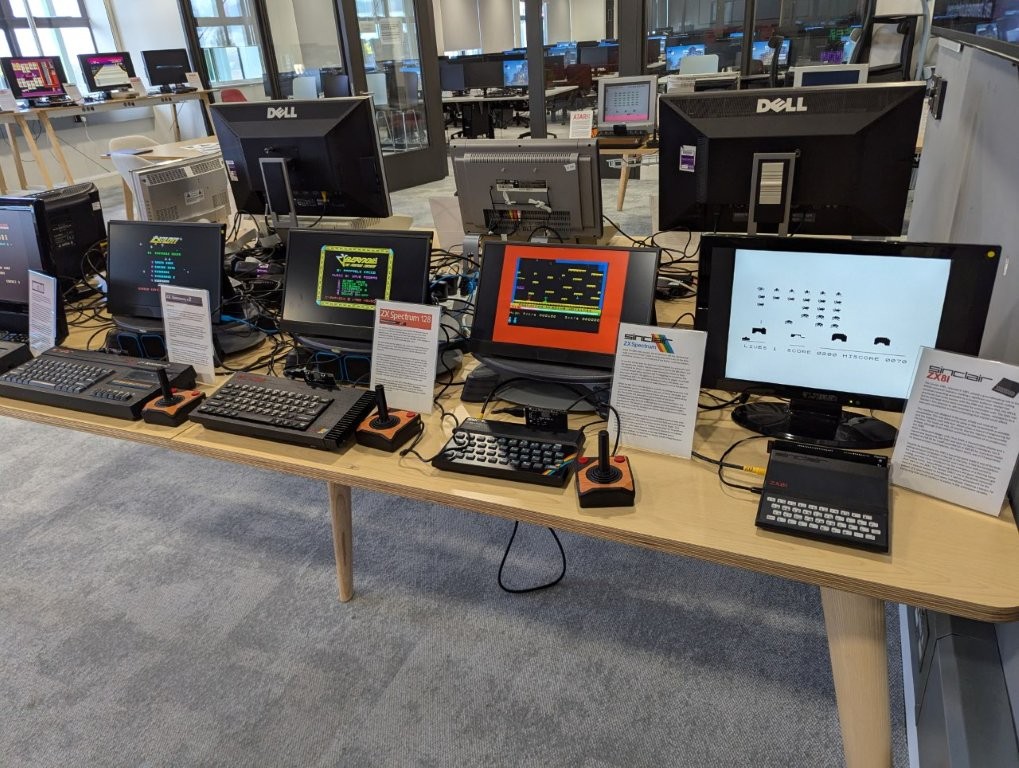
Clive Sinclair's finest - the original Sinclair Spectrum and its siblings - always go over well with parents and prospective students alike at KU open days!
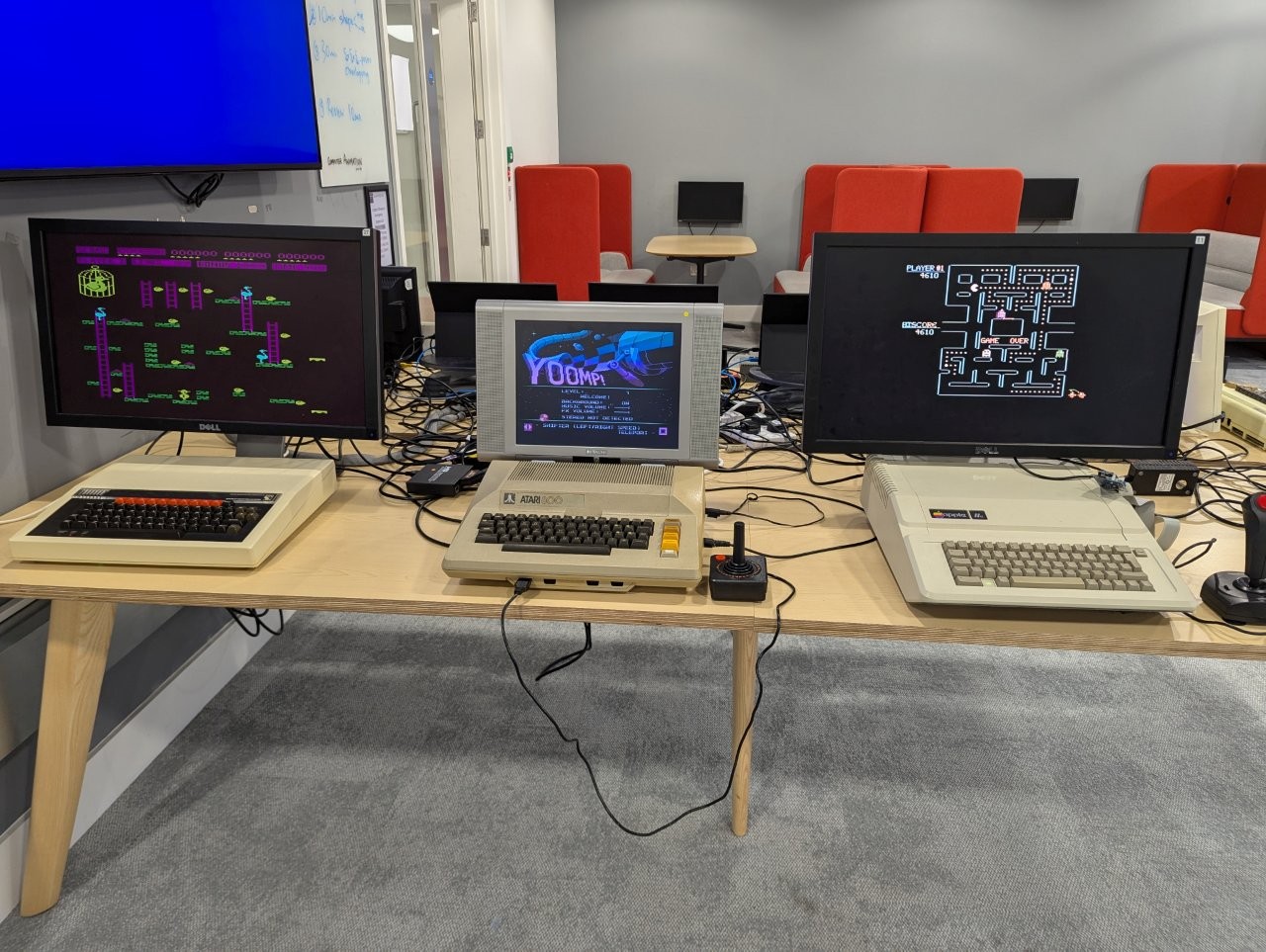
And in the interests of impartiality, naturally we have to have the 6502 CPU represented at open days too, courtesy of a BBC, an Atari and an Apple IIe. The 6502 inspired Sophie Wilson and her colleagues at Acorn when they designed the ARM processor - and today, ARM powers pretty much every mobile device there is.
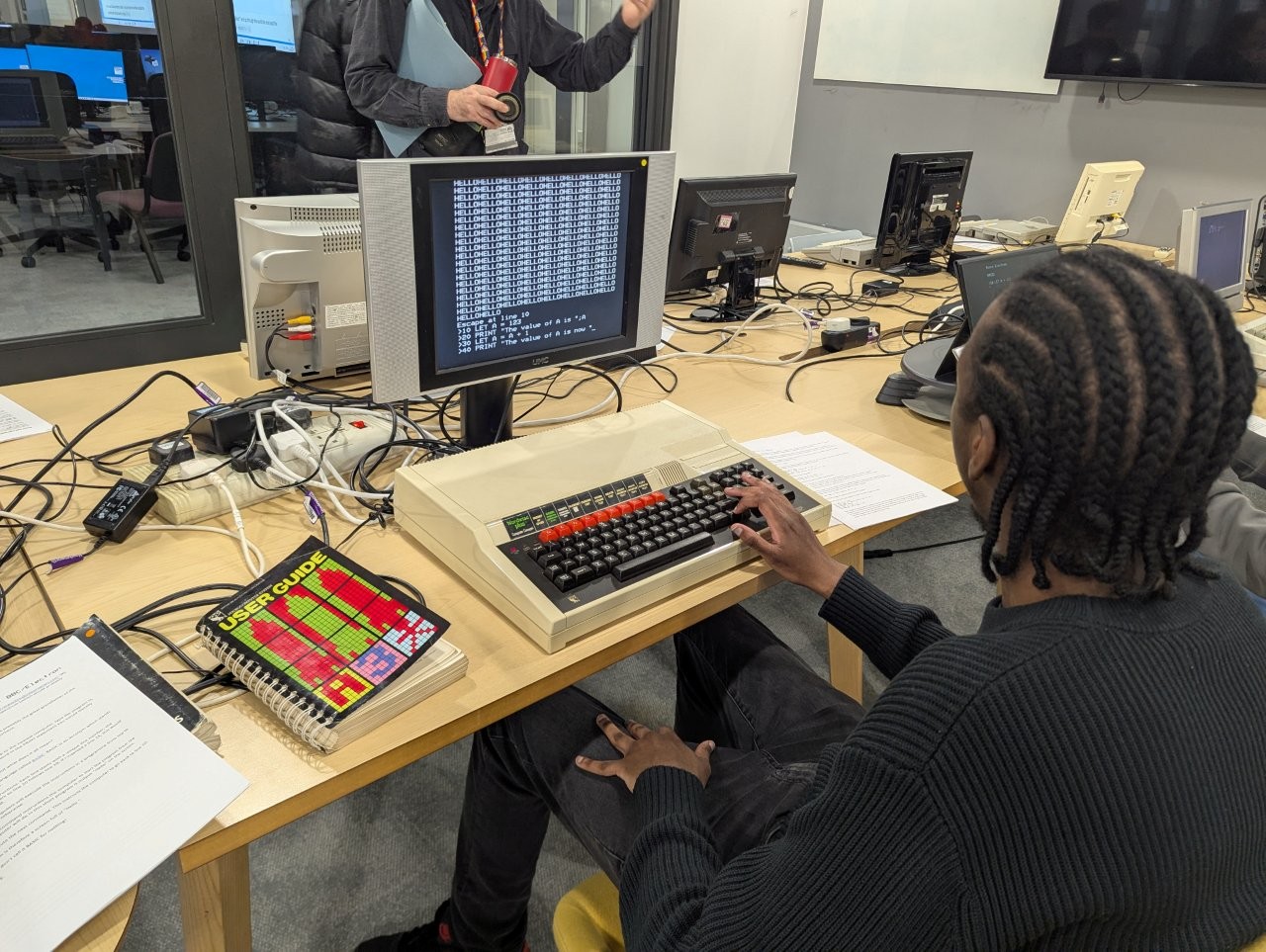
One of our retro hackthon students tries his hand at BBC BASIC. The BBC Micro was the pre-eminent machine for education throughout the early 80s, and virtually every British school had one.
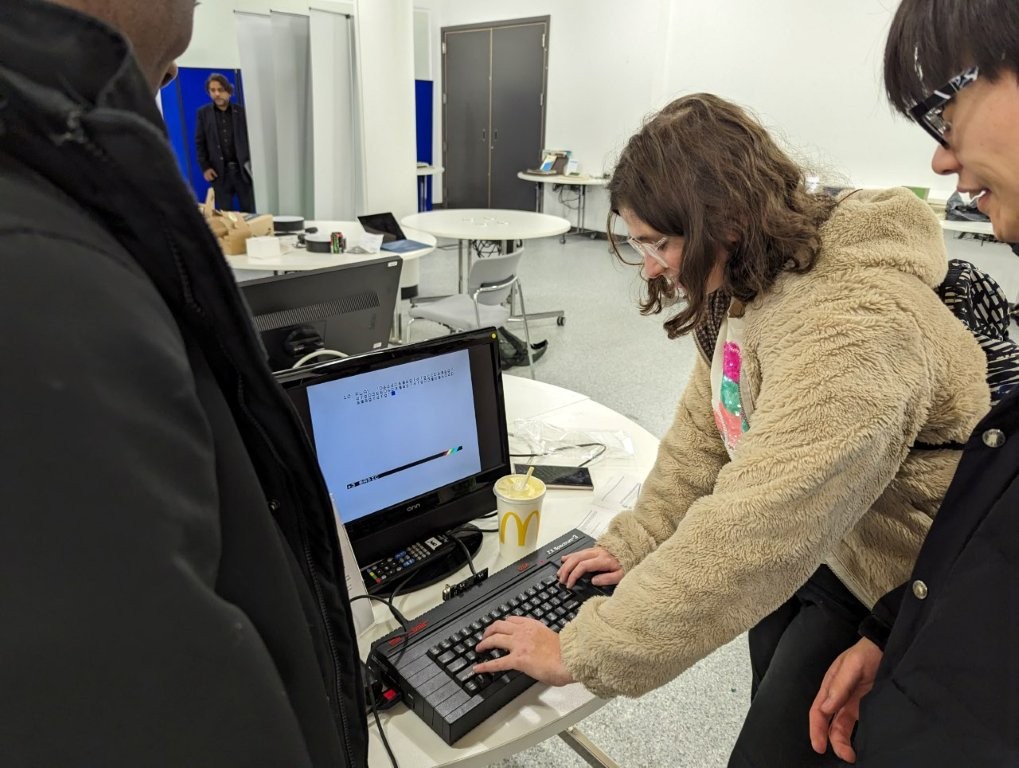
KU students from our BSc Computer Science and Computer Science and AI courses try out Sinclair BASIC on a Spectrum +3 at last year's exhibition. Perhaps they'll get a Large Language Model running on it... :)

KU's iconic Town House building was the setting for our 2025 exhibition. Winner of the EU Prize for Contemporary Architecture and the RIBA Sterling Prize for the UK's best new building in 2021, it provides a state-of-the art facility for learning and teaching - and for retrocomputing exhibitions!
This is just a selection of our exhibits. Our collection spans the late 70s through to the mid-90s. We focus on the home micros that really made the computer personal and took them out of the laboratories and into people's homes. In terms of games consoles, we start with the dawn of home gaming and go up to the end of the 16-bit era.
We love sharing these important pieces of history with other people. Whether that's taking exhibits on the road, or having people come in and get hands-on at KU - we're happy either way. Here are some of the events and activities we can do with you:
We can bring a selection of machines to your school, college, or youth club - or you can bring your classroom or group to our campus for a retro-programming and computing history session.
You can come to us or our academic can visit you for talks about this fascinating period of computing history. Of course, we wouldn't come empty handed - there'd always be the chance for a bit of hands-on afterwards!
Fancy a session of retrogaming action in your venue? We can bring the classic gaming platforms - you bring the catlike reflexes and friends.
In the first instance, the primary contact for ARC@KU is Paul Neve. Get in touch with Paul by emailing paul@kingston.ac.uk. Either he or one of his colleagues will be back in touch as soon as possible.
